Principal Team Message
Edition no: 4, 2023
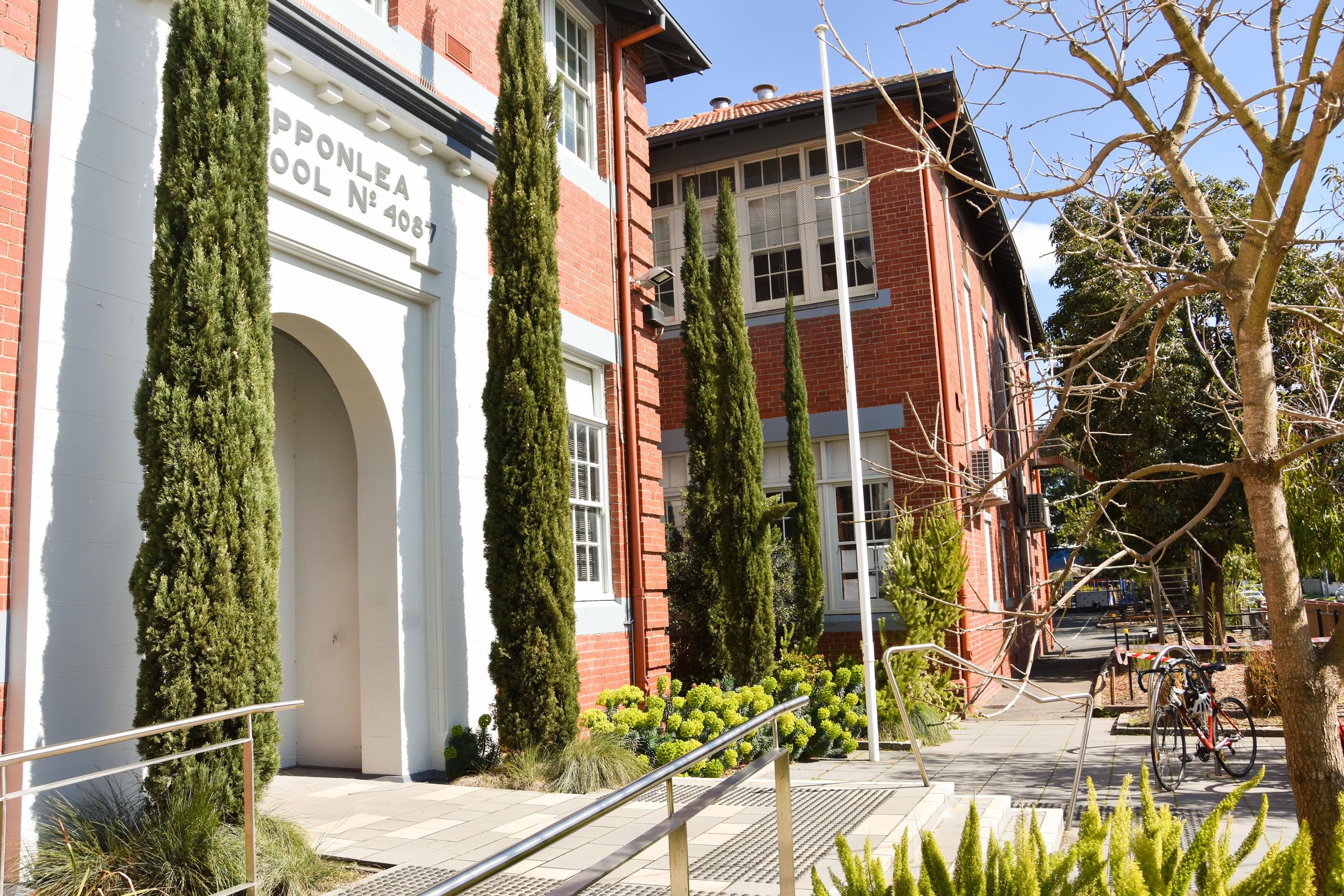
Principal Team Message
Edition no: 4, 2023
We've had a busy fortnight with a great long weekend in between. Chatting with students we discovered many went camping, travelling interstate or loved being outdoors with their friends and family. The weather has been a small gift to all at this time of the year, considering we didn't have a great summer.
We endeavour to set most of our curriculum days when possible backing onto public holidays, so that parents and carers have the opportunity to secure some leave from their own workplaces. This is not always possible due to the availability of the presenter.
Last Friday, our teachers were highly engaged with professional learning led by Bronwyn Ryrie Jones. We discussed a range of practical strategies that could help our students remain attentive during lessons and how to assist them in transferring their learning into working memory and then long-term memory.
Bron was inspiring with her logical, sensible, and pragmatic approach that enables our busy teachers to improve their practice in the classroom.
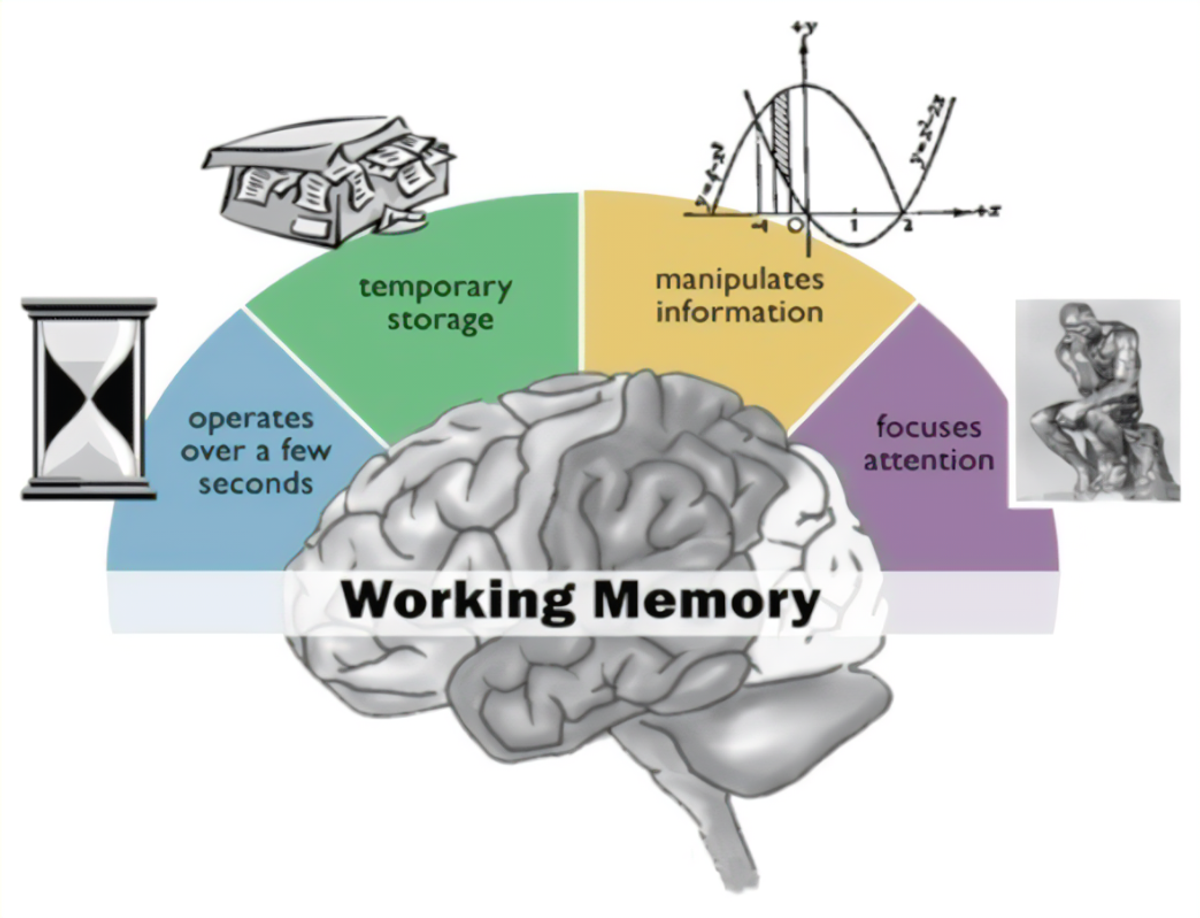



Thank you to the parents and carers who attended our presentation. We do recognise how difficult it is to take time off work to attend such sessions. We would facilitate these sessions after hours, but we simply cannot request our staff to attend outside of their working hours. We will be recording this session and distributing later this term.
Whilst we reflected on the achievements of 2022, it was more important to provide our families with information on how we have led school improvement over the years and into 2023.
Did you know that from 2019 - 2021 we worked on improving the writing and reading skills of our students? From 2022 to 2024 we will be working on improving the numeracy and social-emotional skills of our students.
We also discussed the use of evidence-based teaching practices at Ripponlea Primary School. Evidence-based teaching simply put is practice that research has shown will have the greatest impact on student learning. Our teachers want to use researched evidence to inform their practice and want to be using teaching practices that work best for their students.
At RPS we use the following and many other evidence-based teaching approaches:
Four Proficiencies of Mathematics
The proficiencies of Understanding, Fluency, Problem Solving and Reasoning are fundamental to learning mathematics and working mathematically and are applied across all three strands Number and Algebra, Measurement and Geometry, and Statistics and Probability. Braden Leech and Stef Hoffner shared how these proficiencies are taught in our classrooms.

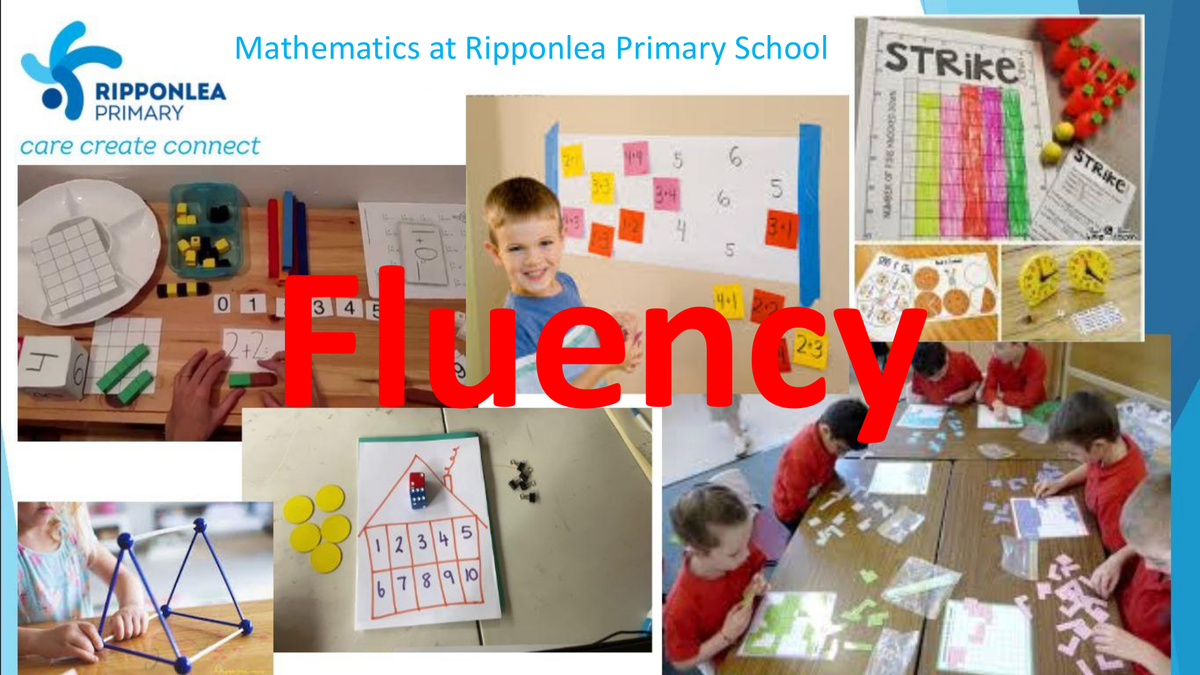
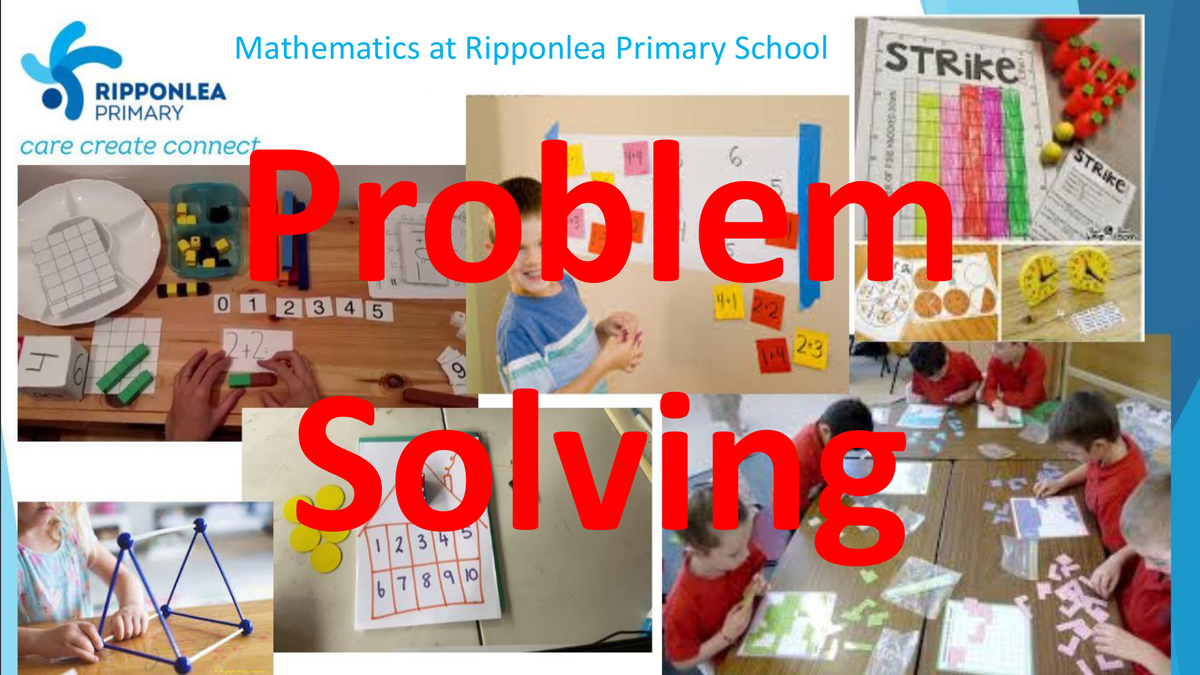
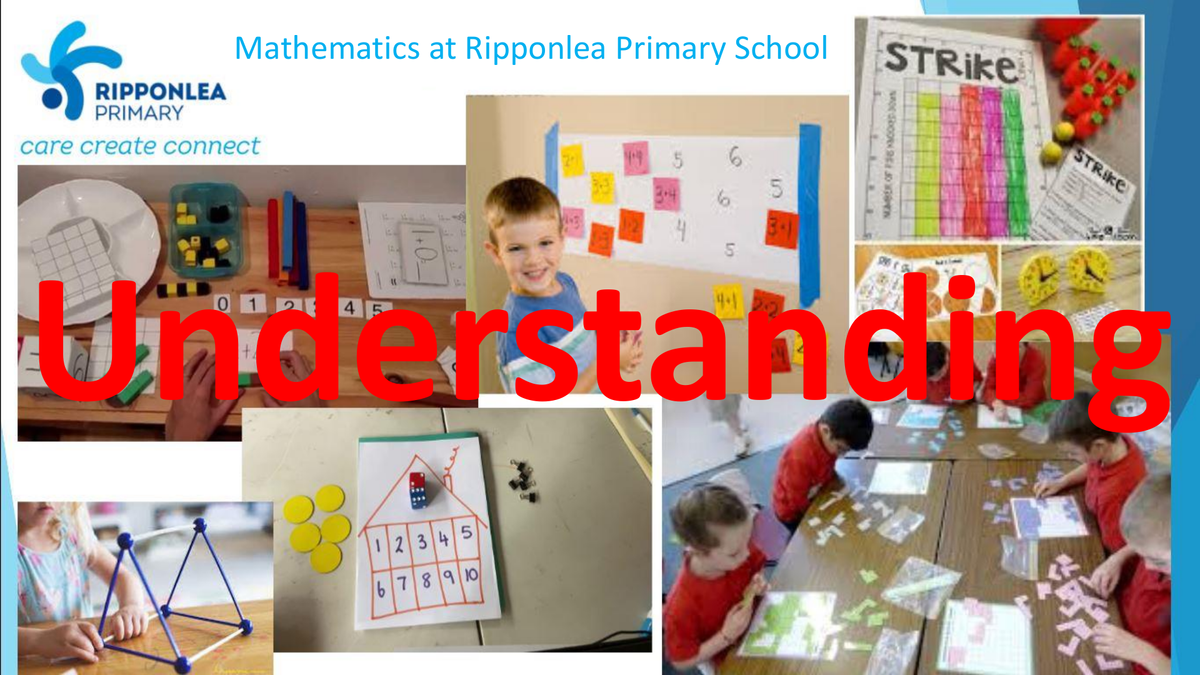






Scaffolding Literacy


Scaffolding Literacy is a pedagogical approach based on the sociocultural theories of Vygotsky and Bruner. It uses high-quality mentor texts which are exemplary for their genre, in order to teach reading and writing skills. Through the explicit teaching of language features within written texts, learners are able to engage in texts beyond their independent reading ability. The approach uses a deliberately designed sequence of lessons, with a specific focus on authors’ vocabulary selection, sentence structure and language patterns. Self-differentiation occurs throughout the sequence, allowing for all student needs to be catered for as they adapt, transform and apply the authors’ work into their own writing.
Gradual Release of Responsibility Instructional Model
The gradual release of responsibility model of instruction ensures that cognitive work shifts slowly and intentionally from teacher modelling, to joint responsibility between teachers and students, to independent practice and application by the learner. The RPS 'Ready to Learn' model takes this approach as well as embedding High Impact Teaching strategies and activating student agency in the learning process.
Explicit instruction
Explicit instruction involves fully explaining and effectively demonstrating what students need to learn. In the classroom, this can include strategies like actively supervising and interacting with students as they practise their skills, specifically outlining learning objectives and success criteria, and using worked examples to demonstrate the steps needed to complete a task.


School-Wide Positive Behaviour Support Framework
The SWPBS approach is comprised of evidence-based behavioural interventions and practices that can be implemented by staff to effectively address and support the socially and educationally important behavioural needs of students.
PBS has its conceptual foundations in:
Through the implementation of PBS, school wide systems are aligned to create an inclusive environment where there is:
PBS is “....a broad range of systematic and individualised strategies for achieving important social and learning outcomes while preventing problem behaviour with all students.”
George Sugai & Tom Herner, 2002
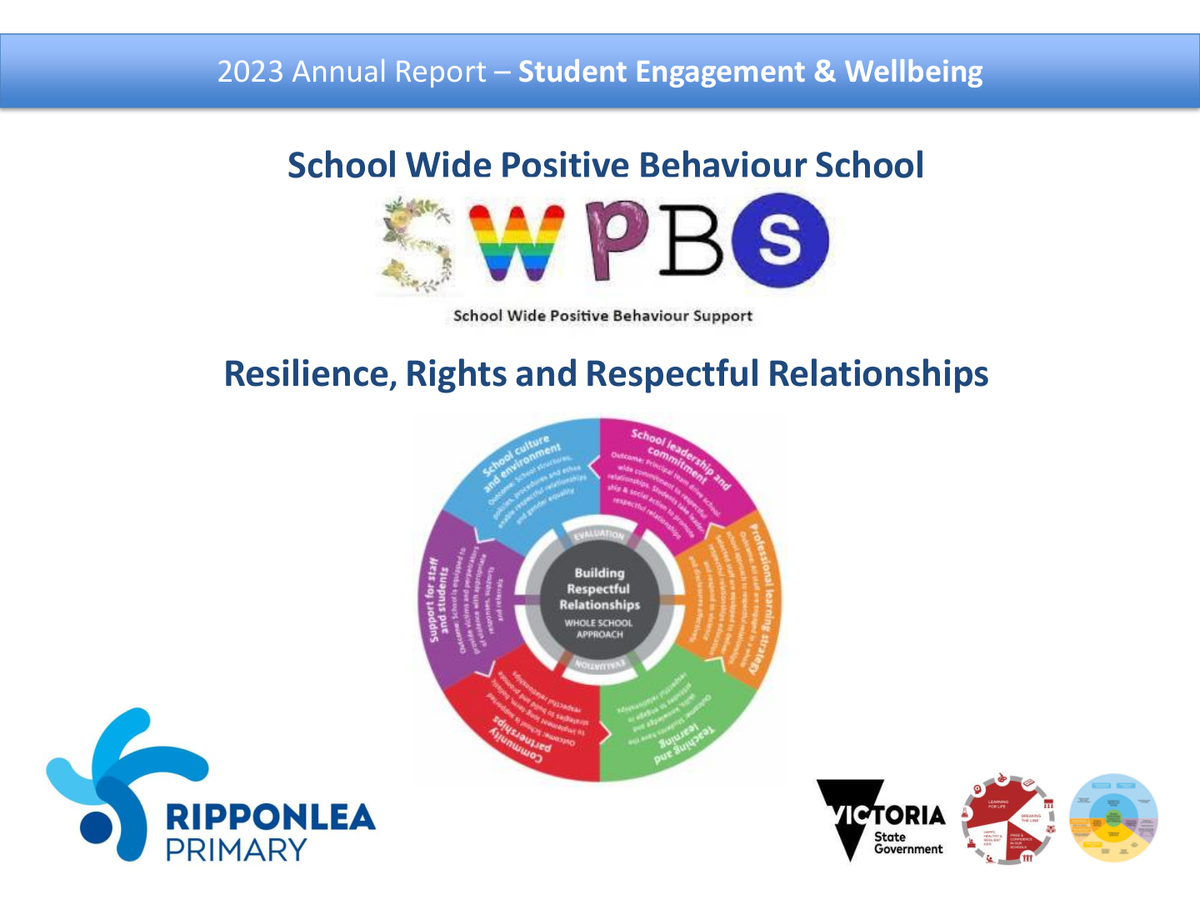

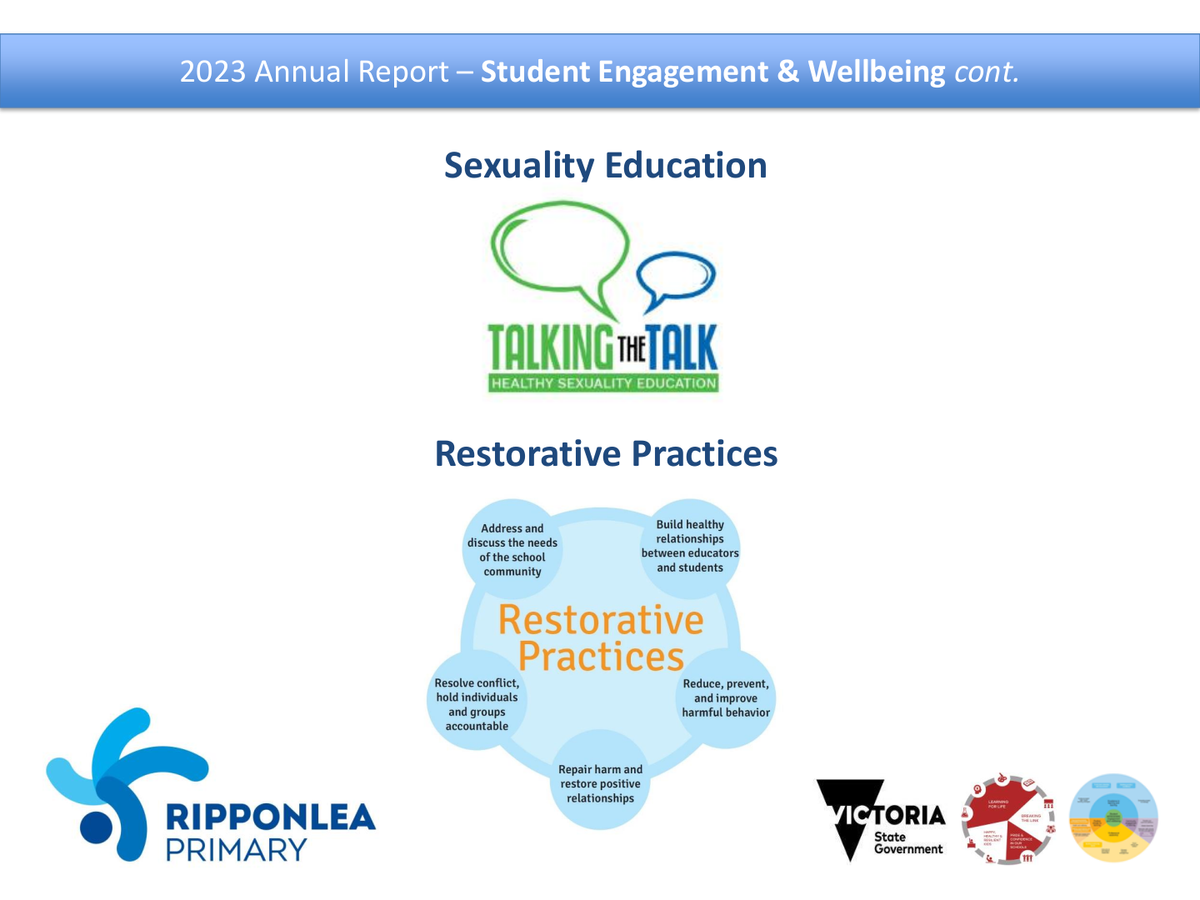



We marked this special occasion with a visit from Josh Burns, Federal Minister for McNamara. As our students near their final year of primary education, there is a certain amount of responsibility that is placed on their shoulders. Whether they have ‘official’ leadership positions or are simply the oldest cohort, they need to understand the importance of their roles as student leaders.
They need to develop strong leadership skills. Most importantly, students need to understand what makes a good leader. Being a student leader is about more than just running an event or presenting at an assembly! Being the eldest student in the school is a lot of responsibility. Students are responsible to younger students as role models and buddies, and to each other, as they work together to prepare for high school.
Student leadership is not confined to a small group of individuals, as leadership potential is inherent within all learners.
Here are some skills we work on with ALL students in Year 5/6:
Communicating isn’t just about being a confident speaker! A good leader knows when to speak, how to speak, and also how to listen effectively. In order to inspire trust in others, students must speak with good intentions – this means speaking with honesty and kindness.
Modelling a creative and flexible mindset is important as students learn to process increasingly complex ideas. Leaders are able to collaboratively solve problems and work with others to come up with amazing answers.
Good leadership is not about being ‘in charge’! Rather, it’s about supporting those you are leading. Student leaders need to take responsibility for their actions and choices. They recognise that owning their actions is a step in maturity that is necessary as they enter high school. Alongside this, is the responsibility they have to not lay the blame on others for their decisions.
Having a positive mindset is integral to inspiring and leading others! This can sometimes be difficult for students as they come across more difficult work and transition into high school. Helping students keep up motivation goes a long way to promoting leadership skills in students. Being motivated and motivating others is a big part of what makes a good leader.
Perhaps the most important quality of all! A great leader leads by example. Younger students often look up to older students with awe and admiration! They closely watch and copy the behaviour of older kids, and so a good student leader understands their responsibility as a role model to the younger years.
Not only do they recognise this responsibility, but a good leader is excited about the opportunity to lead and guide others! They would never ask anyone to do anything which they are not willing to do.




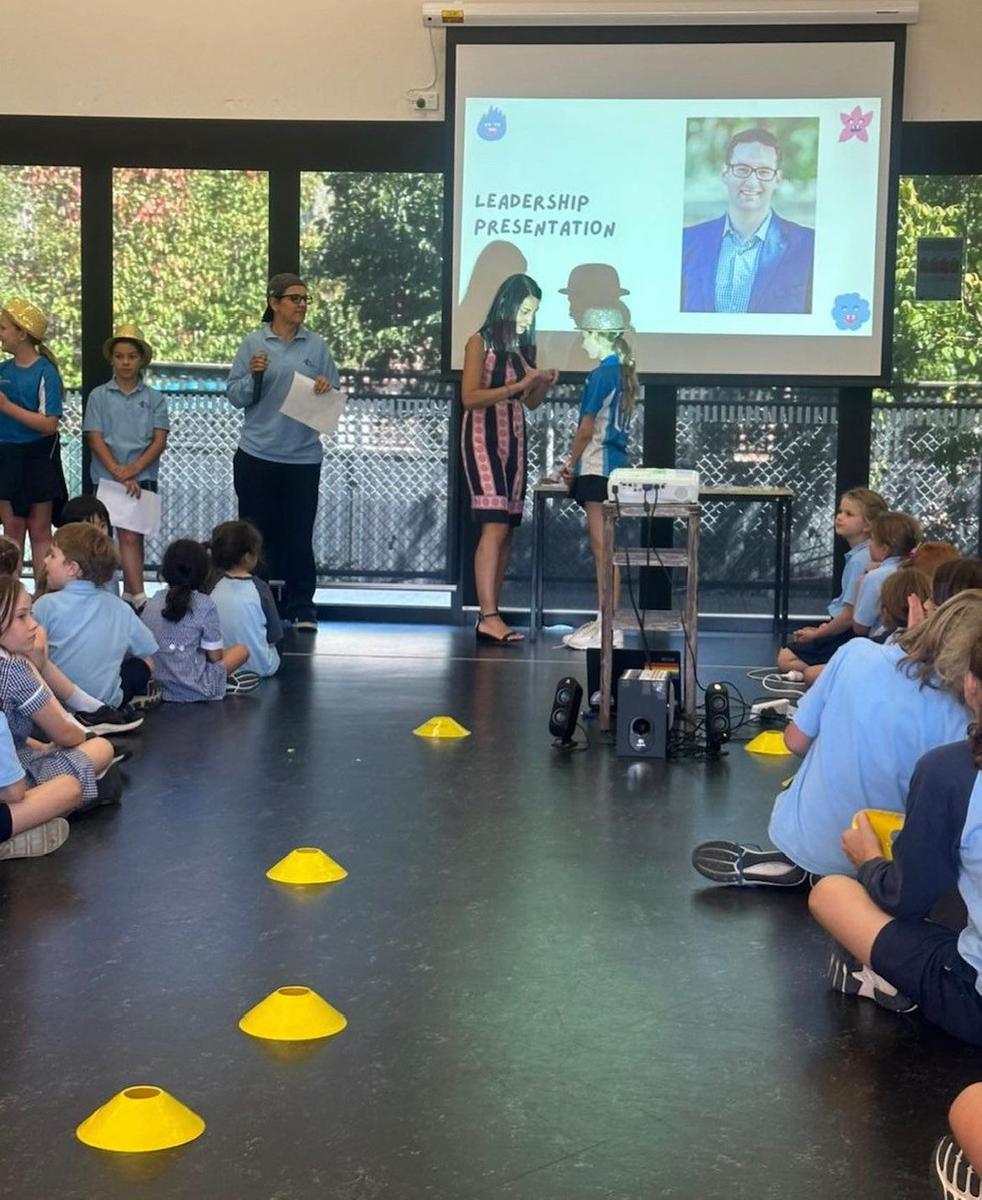



As one of the smallest schools in the local area, surrounded by many private schools, families in the wider community are often unaware of what we offer.
The most common way new families seek information is through personal recommendations and 'word of mouth' across the community.
We are seeking members of our school community willing to write an updated school review online (google) or have their statement of experience featured on the school's website.
We have commenced our school tours and welcome queries regarding our enrolment processes. If any member of our community is willing to write a review, please contact the office and speak to Jac.




Last Friday, you might have witnessed some of our staff dressed in school uniforms. We dressed this way to stand with our students against bullying and violence because we believe they have special powers and are superheroes who can ensure bullying is prevented and does not happen anywhere in our community and especially not at school.
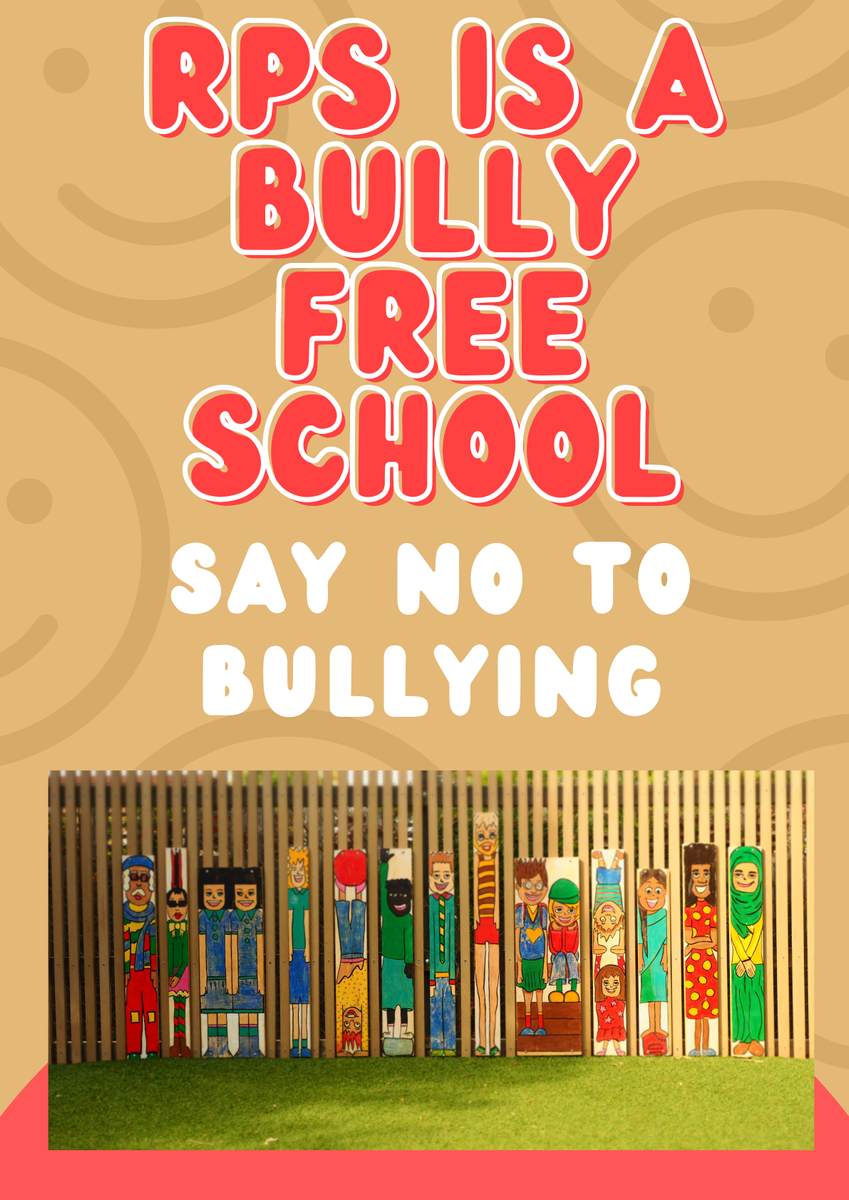

We need the help of our families to also understand what bullying is and is not, as we often have poor messaging to our children when they have conflicts or incidents at school. The word 'bullying' is often instantly thrown out when a student encounters a conflict with another student, but this is not necessarily bullying and is often an act of unkindness, which can be rude or mean or an act of exclusion. Sometimes there is a physical response as children struggle to regulate their emotions in any given incident.
You can usually identify bullying through the following three characteristics: intent, repetition, and power. A bully intends to cause pain, either through physical harm or hurtful words or behaviour, and does so repeatedly.
Bullying is a pattern of behaviour, rather than an isolated incident. Children who bully often just want to fit in, need attention or are simply figuring out how to deal with complicated emotions. In some cases, bullies are themselves victims or witnesses to violence at home or in their community.
The national definition of bullying for Australian schools is:
Bullying is an ongoing misuse of power in relationships through repeated verbal, physical and/or social behaviour that causes physical and/or psychological harm. It can involve an individual or a group misusing their power over one or more persons. Bullying can happen in person or online, and it can be obvious (overt) or hidden (covert). Bullying of any form or for any reason can have long-term effects on those involved, including bystanders.
Single incidents and conflict or fights between equals, whether in person or online, are not defined as bullying. However, these conflicts still need to be addressed and resolved.
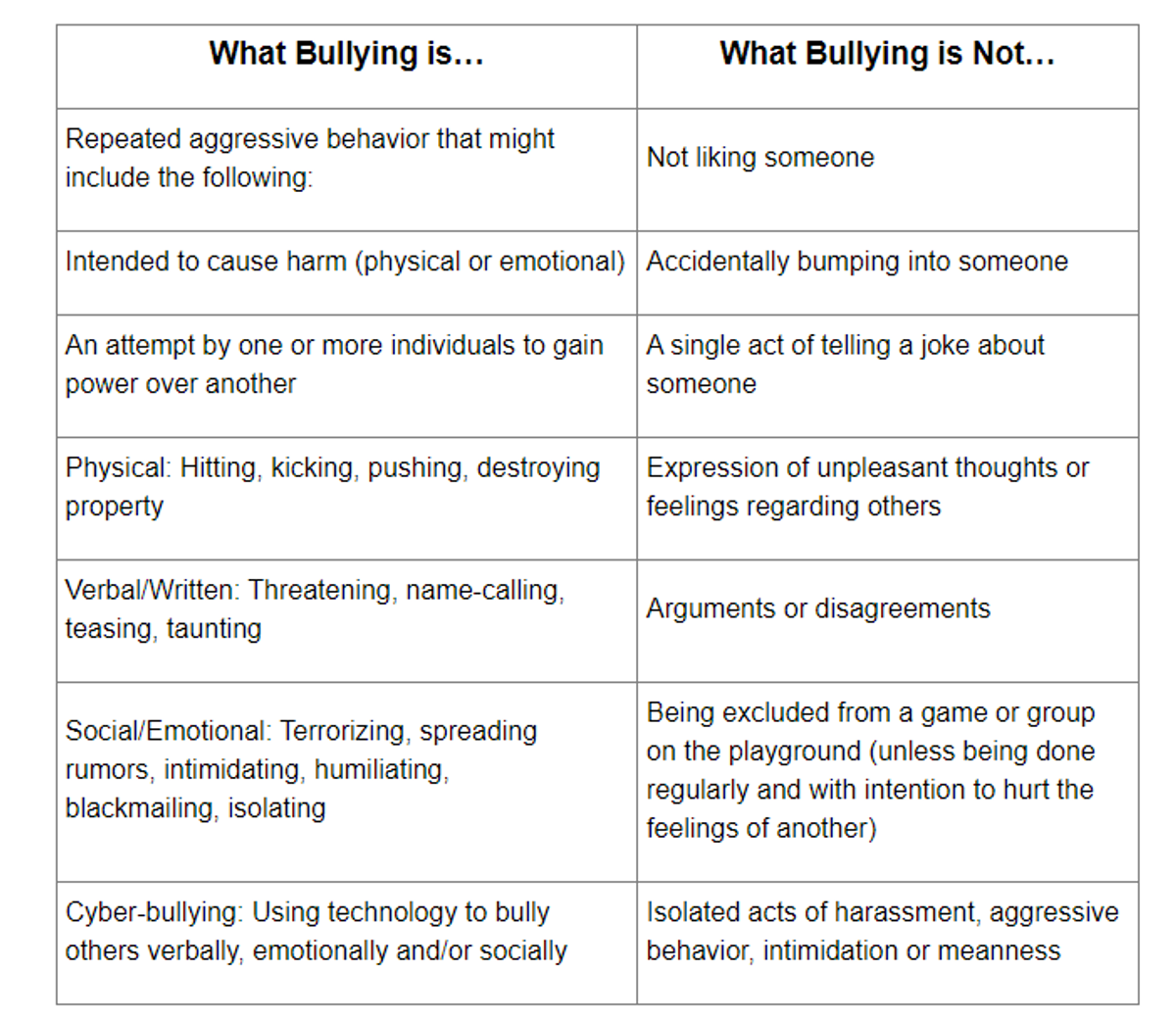

At RPS we are committed to providing a safe and respectful environment for every member of our community where bullying will not be tolerated and will be managed in line with our Bullying Prevention Policy.
Our diversity makes Australia a great place to live and Harmony Day is a celebration of our cultural diversity – a day of cultural respect for everyone who calls Australia home.


It's such an important message to teach our children that "EVERYONE BELONGS" and it's vital as adults that we connect with our own thoughts and values and contribute to shared understandings of other cultures and beliefs.
We invite families into our classrooms to share their cultures and beliefs whenever they are willing.
Diversity equals respect!

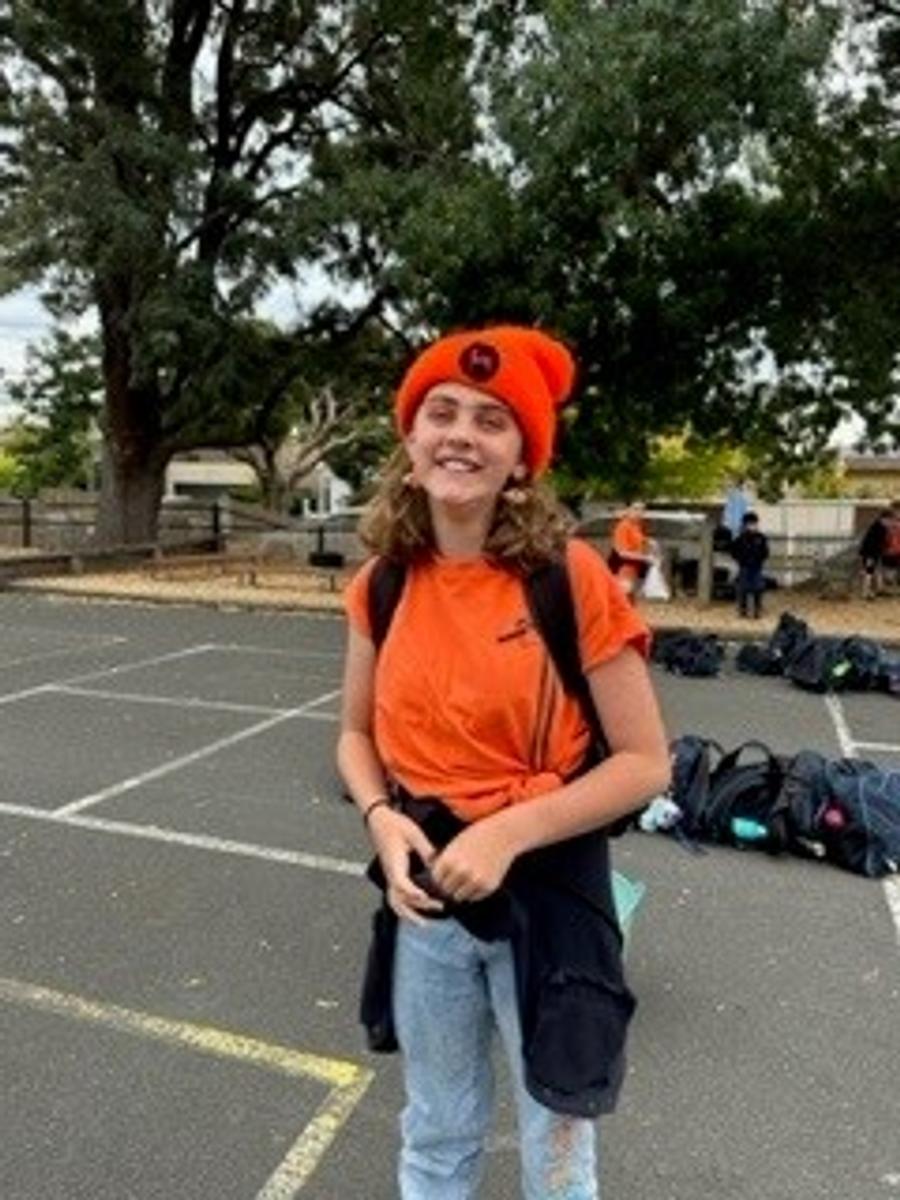

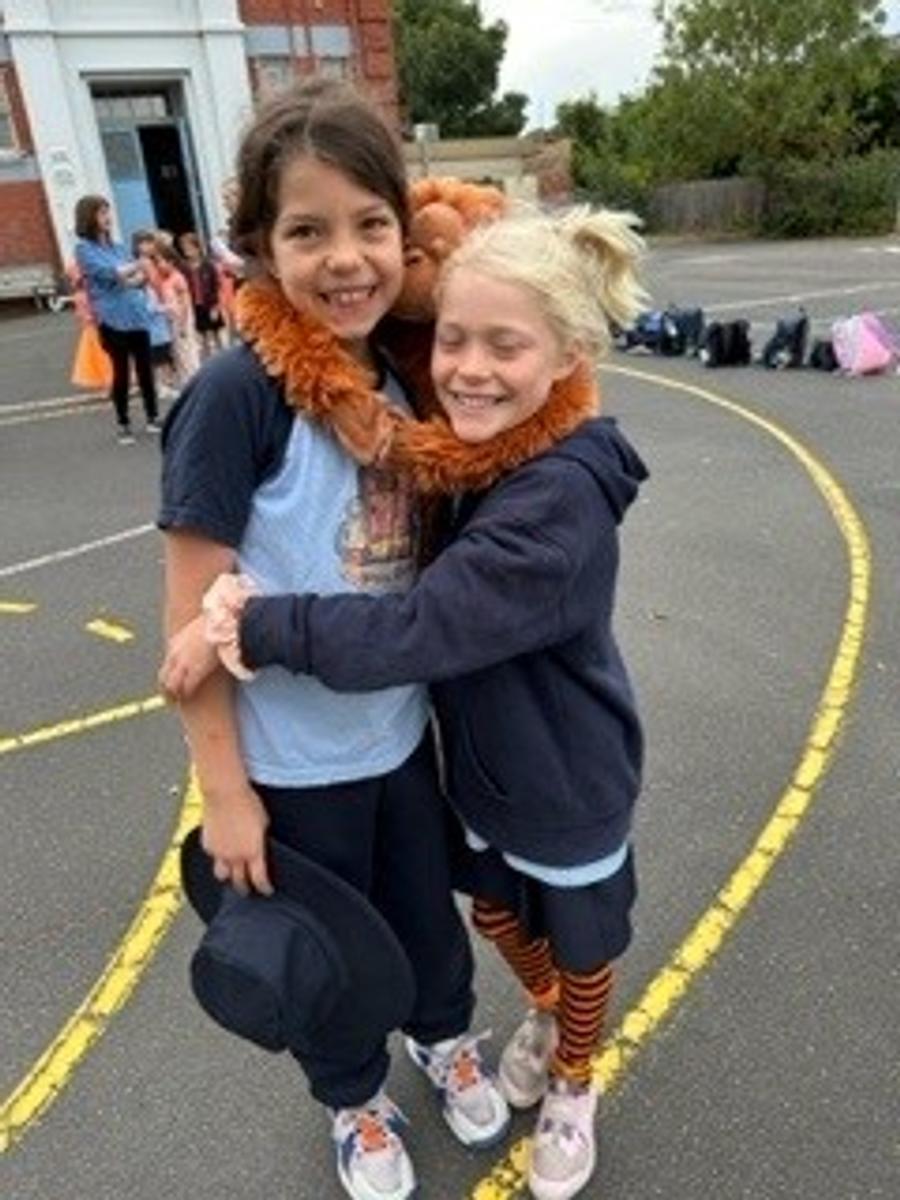






A free gift for your well-being, please come along and register here.
https://forms.gle/vTFi77kh2hQuVVsV9
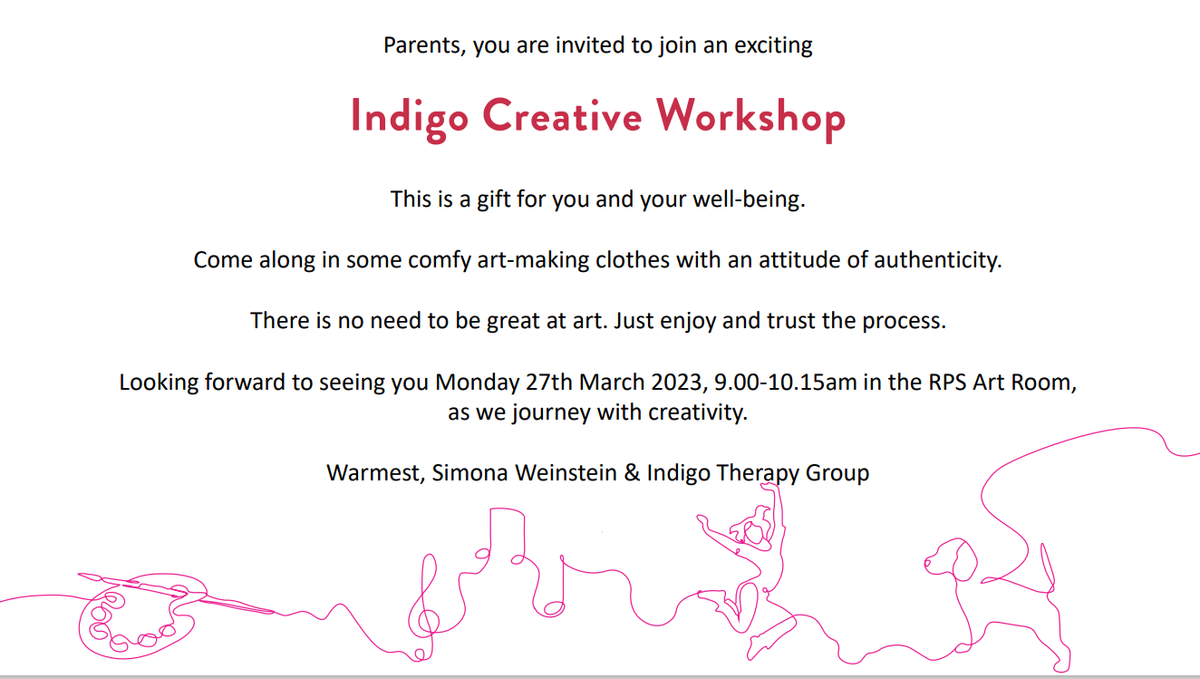

We warmly invite our families to visit our classrooms and watch the learning in action. Feel free to join in and see what learning looks like today. Ask the students what they are learning and why. After a visit to the classrooms, please join the whole teaching team in the Barrbunin for a Curriculum Information Presentation and Q&A session.
SAVE THE DATES & PLEASE COME ALONG
Monday 27 March | Tuesday 28 March | Wednesday 29 March | Thursday 30 March | |
|---|---|---|---|---|
| Year 5/6 Team | Foundation Team | Year 1/2 Team | Year 3/4 Team
| |
| 9:15 am | Classroom Visits | Classroom Visits | Classroom Visits | Classroom Visits |
| 9:50 am | Curriculum Presentation | Curriculum Presentation | Curriculum Presentation | Curriculum Presentation |
| 10:30 am | Morning Tea | |||
A huge Thank You to everyone that has volunteered to be the class representative for 2023. By now you should have been invited to a WhatsApp group by your representative, if you have chosen to share your details with your year level through our COMPASS permissions and consent questionnaire early in Term 1.
A full class contact list can also be accessed in these groups. These are great to organise playdates on the holidays, birthday parties etc.
Please see our class representatives below:
| Class | Contact |
|---|---|
| FA | Cindy (Harry's mum) |
| FB | Romany (Etta's mum) |
| 12A | Mindy (Dakota's mum) |
| 12B | Jess (Hattie's mum) |
| 12C | Paige (India's mum) |
| 12D | Alice (Arlo's mum) |
| 34A | Jac (May's mum) |
| 34B | Robyn (Billy's mum) |
| 34C | Harini (Pragya's mum) |
| 34D | Elinor (Tim's mum) |
| 56A | Tarryn (Dia's mum) |
| 56B | Eliza (Oli's mum) |
| 56C | Amelia (Harriet's mum) |
Please be aware of our school guidelines and 'golden rules' when using this space. This is not a school monitored portal, but when used in the right way can be an easier way to access information and keep in contact with your child's classmates and parents.
RPS WhatsApp Golden Rules:
If you have not been added to the list or you wish to make changes to your 'permissions and consent' questionnaire, please contact the office.
Until next fortnight.................
Natalie Rose & Marta Campbell
Principal Acting Assistant Principal

